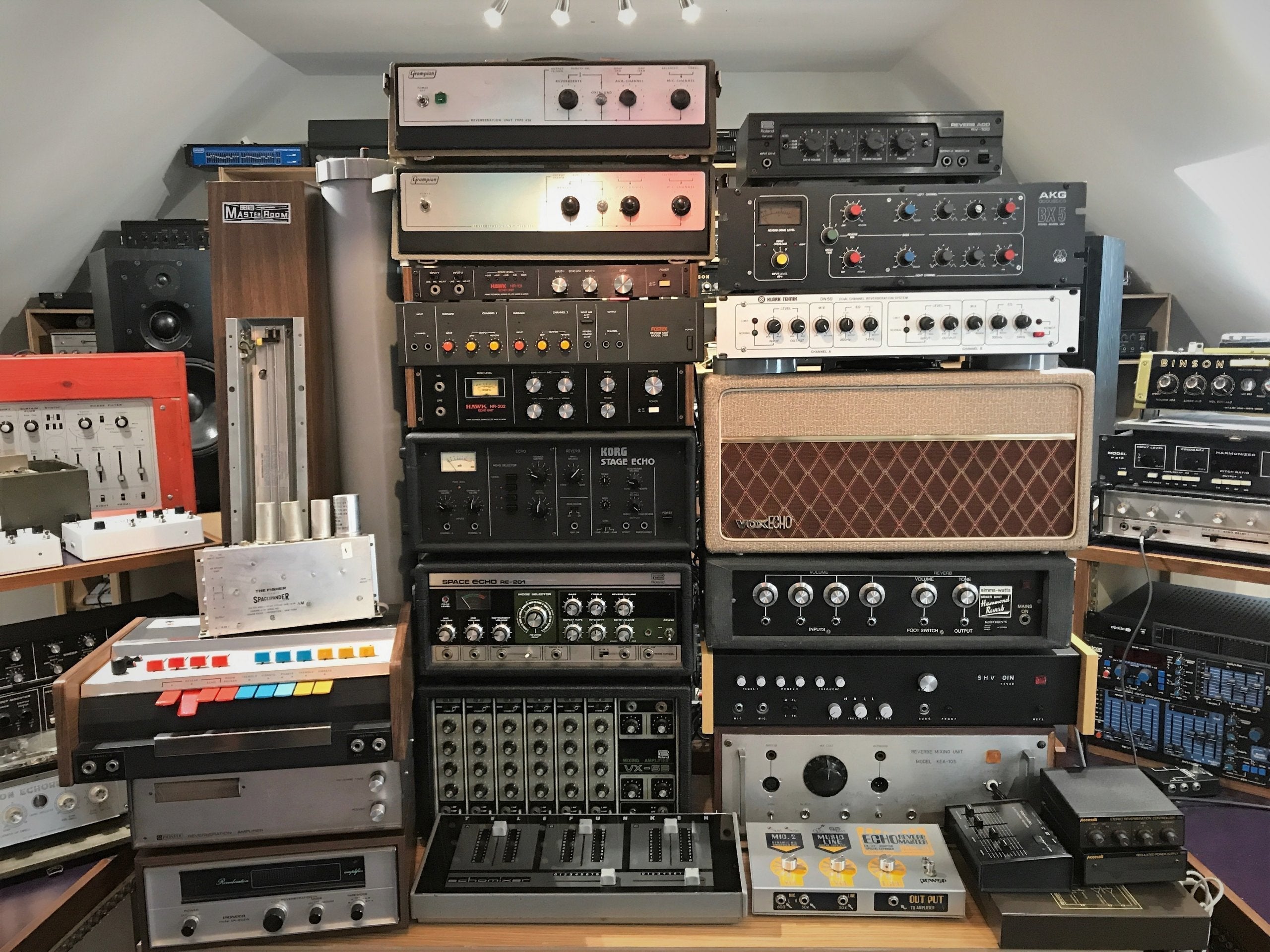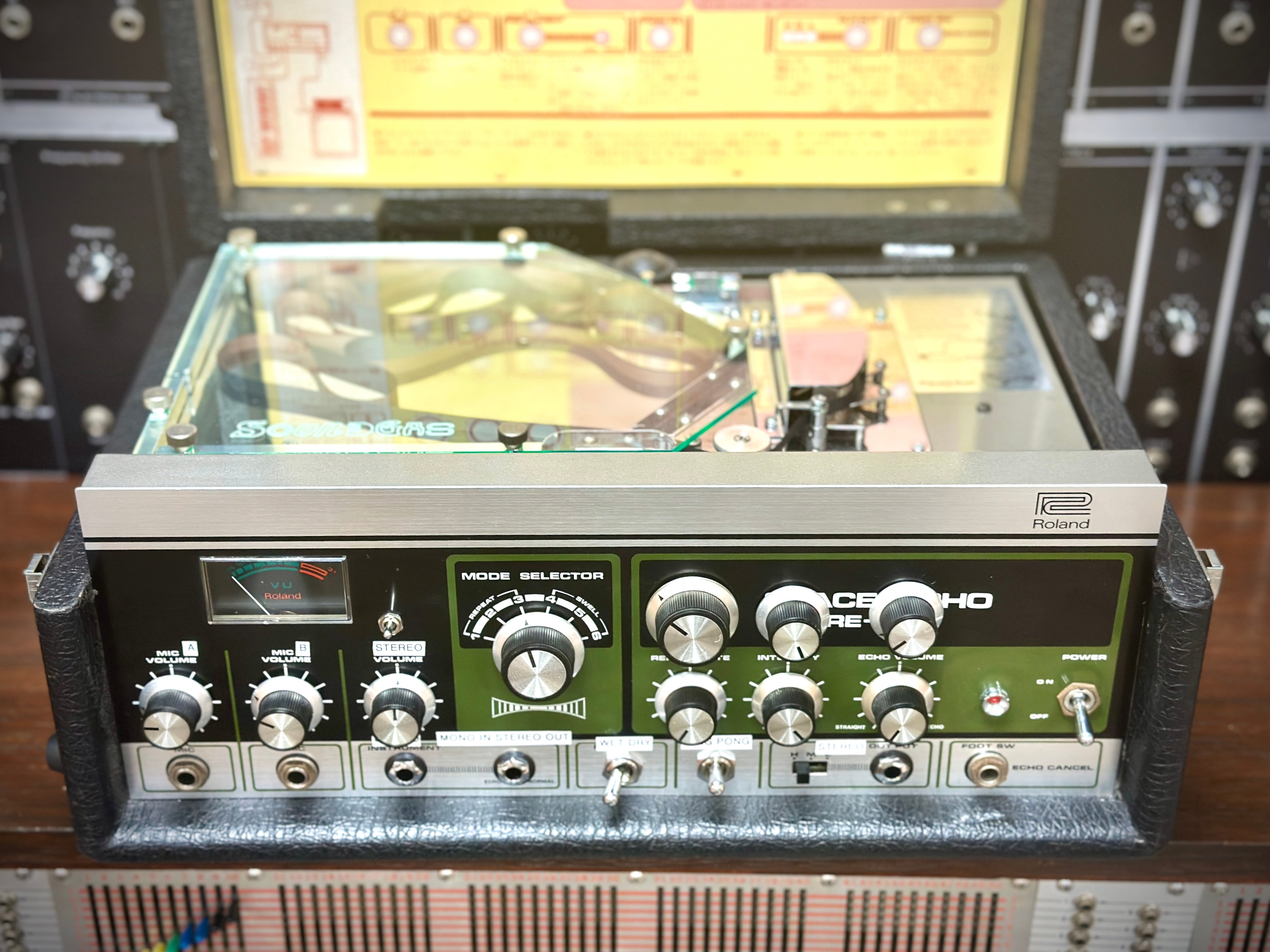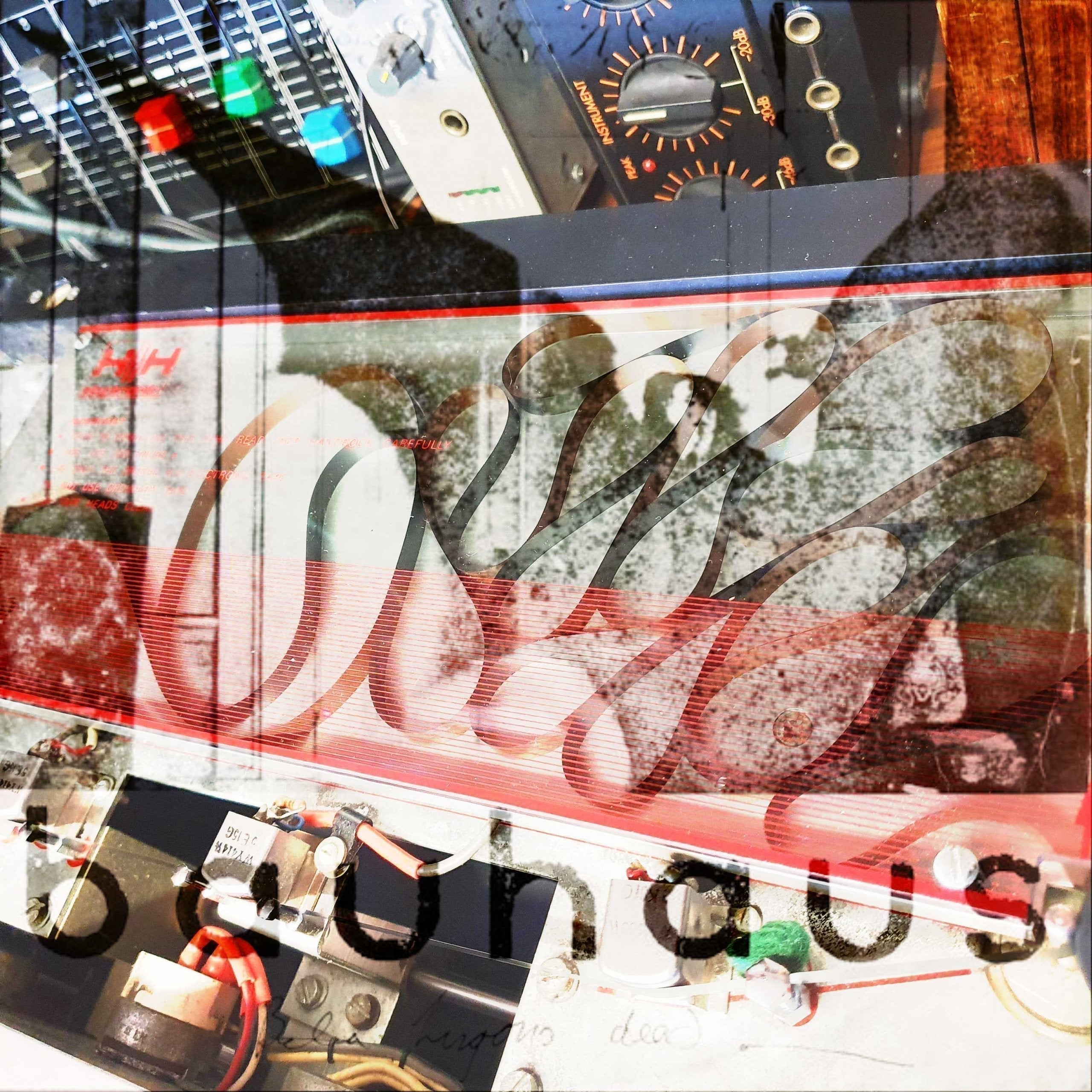
Save Our Culture! Abbey Road, Strongroom & Maida Vale
When it's gone it's gone. A recent meeting with the man instrumental in saving Abbey Road Studios from being flattened for development gets Tony thinking about what can be done to prevent other irretrievable losses of cultural history.
Last week we had the pleasure of meeting Peter Cobbin and Kirsty Whalley from Such Sweet Thunder when they visited Soundgas. The pair met while working at Abbey Road and are legends in the world of mixing sound for picture (2012 London Olympics - the largest multi-track recording ever made, assorted Harry Potters and Hobbits, 2014 Sochi Winter Olympics...).
Peter was the first engineer at Abbey Road to be recruited from outside EMI and was responsible for helping them see the value in their heritage at a time when they were hell bent on discarding old tech. One of the first things he encountered on his arrival there was a Fairchild being used as a doorstop.
He told us how he tracked down EMI’s last remaining TG desk; abandoned in three pieces in their Hayes storage facility. It’d been used by EMI Classical for recording concerts before being mothballed as being out of date (not the only time eyebrows were raised amongst the old guard techs when he asked to reinstate ‘obsolete’ gear). EMI pretty much ‘gave away’ the TG12345 MK IV from Studio Two used to record Pink Floyd’s Dark Side Of The Moon (recently sold at auction for $1.8 million) and also the original Mk1 desk used to record The Beatles’ Abbey Road, amongst many other classics.
As chief engineer, he was instrumental in getting the studio and iconic zebra crossing listed as historic buildings, which helped save the studios when they were threatened with being sold off for residential development. It was a personal pleasure for me to shake the hand of the man who’d helped avert this potential act of cultural vandalism; a reminder of what occurs when businesses involved in the arts are in the hands of people who only see today’s bottom line rather than the wider picture. Peter also helped develop the excellent range of Abbey Road hardware manufactured by Chandler Limited, as well as working with Waves to create the Abbey Road range of plugins.
Tiring of the politics and meetings with bean counters, he struck out to set up Such Sweet Thunder with Kirsty, basing their set-up around a console of their own specification which sounds like it owes a debt to the first principles tech of Abbey Road, being based around a ‘simple’ analogue signal path (I hope to learn more about this soon). Given their background, it shouldn’t have come as a surprise to find they both embrace and value analogue so highly, but these days one tends to expect those in film sound to be working purely in the digital domain. Their enthusiasm and enjoyment on encountering the vintage gear caverns and studio at Soundgas was evident and they were soon at work in the studio comparing some Soundgas gear for possible use on a forthcoming project.
For me, Peter’s background and experience is about as fascinating as it gets and I could have listened to his stories of Abbey Road for a good deal longer than we had time for (we barely touched on the subject of working from original Beatles master tapes). I'm looking forward to their next visit very much.
 Over 10,000 people have signed a petition to save Maida Vale on Change.org, but this should be many more.
=============
Thanks for reading. Please take the time to help out these campaigns. And if you know of similar things happening where you are then get in touch via social media or the comments below and we will do what we can to spread the word!
Over 10,000 people have signed a petition to save Maida Vale on Change.org, but this should be many more.
=============
Thanks for reading. Please take the time to help out these campaigns. And if you know of similar things happening where you are then get in touch via social media or the comments below and we will do what we can to spread the word!
 ==========
Tony Miln is the co-founder (& Head Gear Head) of Soundgas. See/hear him in action on Instagram.
==========
Tony Miln is the co-founder (& Head Gear Head) of Soundgas. See/hear him in action on Instagram.
#savestrongroom
The subject of closing important creative spaces is very dear to my heart. The UK has already sleepwalked into allowing too many precious and historic studios and venues to be demolished to satisfy developers’ insatiable appetites. That Abbey Road was once under this type of threat seems scarcely credible, but the current planning application that is casting a shadow over Strongroom’s future, and the BBC’s announcement last year that they are to abandon Maida Vale to development, are two further examples of myopic decision making that blight our musical landscape and heritage.The campaign to #savestrongroom is ongoing and still needs your support on twitter, and instagram: if you haven’t written to object, please do so now - an email is fine…
#saveMaidaVale
The status of Maida Vale is less clear as I write. When the BBC announced their plans to close this important space, there was a brief outcry and reports back in 2018, plus a campaign to #SaveMaidaVale on Twitter supported by Nigel Godrich and Geoff Barrow; but as I searched for fresh information online today there is precious little to be heard from many people, beyond this tweet that sums up what is at stake so well (note there was no reply from BBC 6 Music's Mark Riley to what Nigel said...): At the time BBC Director Lord Hall said, “I understand how much our musical heritage at Maida Vale means to us, to artists and to audiences,” - words which ring pretty hollow when you actually start to look at what has happened to this space. The BBC’s Maida Vale complex housed the Radiophonic Workshop and is where the Dr Who theme was composed. It is where countless bands have played seminal live performances for broadcast including Jimi Hendrix, Led Zeppelin, David Bowie, and Radiohead. The history of the Peel Sessions recorded there for John Peel’s Radio One shows alone are a powerful reason to preserve this space as a place artists and fans alike can come to soak up the atmosphere, but it’s not just about history. In a city besieged by developers building properties that will contribute little to the cultural life of London, this great venue has a vital role to play in today’s music scene. Do we want a desolate cityscape, devoid of inhabitants and patrolled by security vans protecting empty properties, or a place where our music and culture can thrive? Because this is one area that Britain can still, right now, lay claim to the epithet ‘Great’. The BBC have form on sketchy decisions to axe important and valued institutions - it seems scarcely credible today that they considered ditching the influential and popular radio station 6 Music back in 2010. It’s disappointing that more musicians and presenters (whose careers have benefited from playing Peel or other Maida Vale Sessions, and from BBC Radio support) have not been more vocal in their opposition, but perhaps it’s a case of not biting the hand that feeds… In fairness the BBC are far from free of government pressure; they have to be seen to be modernising, the operating hours of the complex are already constrained by its location, and they have to balance the books (renovating the building and removing asbestos would not be cheap); but surely there’s an opportunity and cultural value that goes far beyond the base value of Maida Vale’s real estate? Today it seems inconceivable that we nearly lost Abbey Road and 6 Music; and it’s beyond tragic that we’ve already lost so many special recording spaces like Olympic and Townhouse. Fast forward twenty years and imagine explaining to the next generation how the buildings that housed the Radiophonic Workshop, where so many seminal recorded performances took place, and which were a source of such cultural enrichment, were allowed to be turned into yet more dead investment properties. For more about Maida Vale the Sound On Sound article is full of good stuff. And for a recent, intimate look behind the scenes, look inside this remarkable building - this blog from Mark Urban from Monochrome Set is well worth a look. This photo below is from that post: Over 10,000 people have signed a petition to save Maida Vale on Change.org, but this should be many more.
=============
Thanks for reading. Please take the time to help out these campaigns. And if you know of similar things happening where you are then get in touch via social media or the comments below and we will do what we can to spread the word!
Over 10,000 people have signed a petition to save Maida Vale on Change.org, but this should be many more.
=============
Thanks for reading. Please take the time to help out these campaigns. And if you know of similar things happening where you are then get in touch via social media or the comments below and we will do what we can to spread the word!
 ==========
Tony Miln is the co-founder (& Head Gear Head) of Soundgas. See/hear him in action on Instagram.
==========
Tony Miln is the co-founder (& Head Gear Head) of Soundgas. See/hear him in action on Instagram.
Previous post
The People’s Polysynth: Tony Miln shows some love for the Roland Juno-106
Next post








